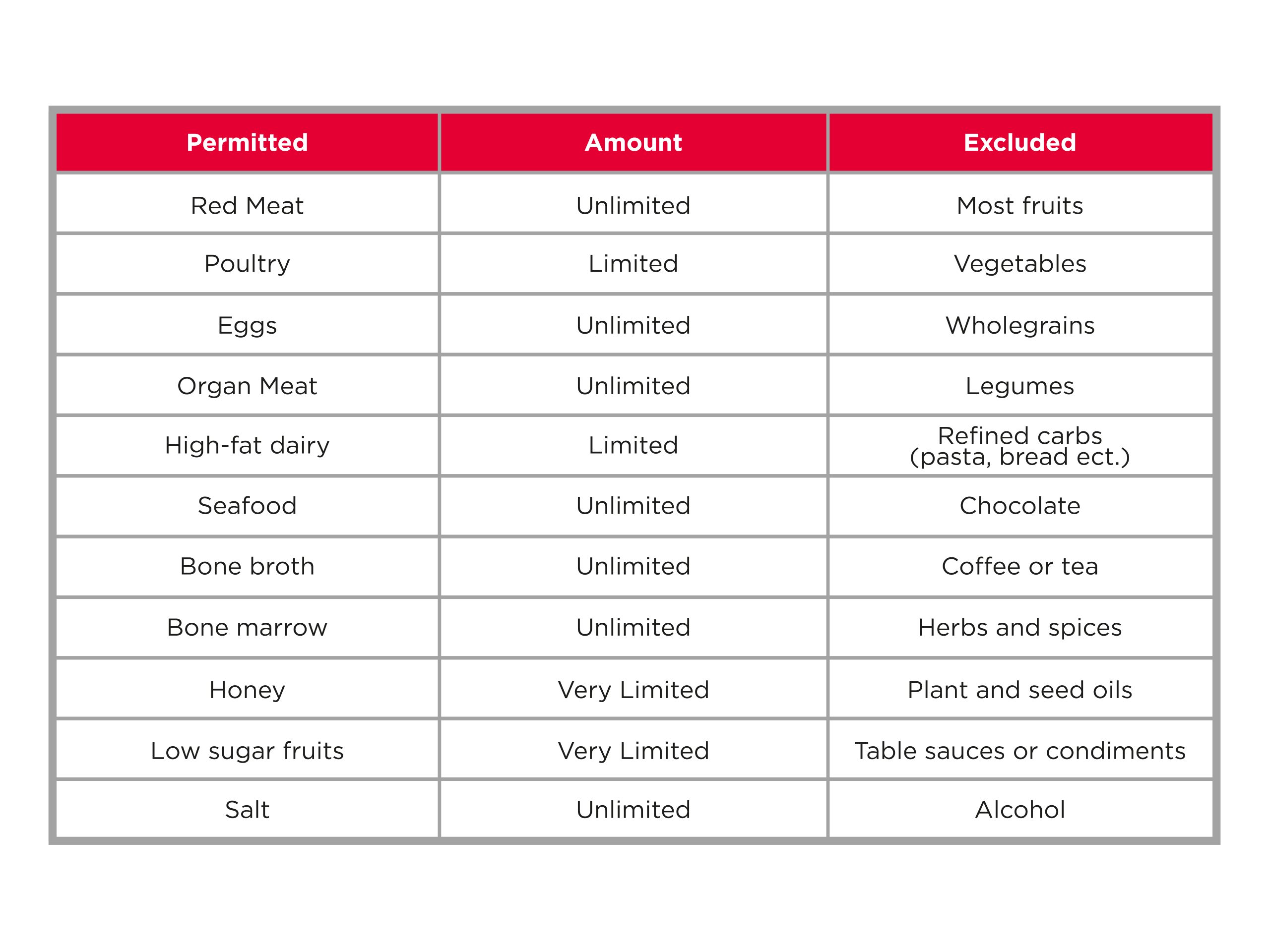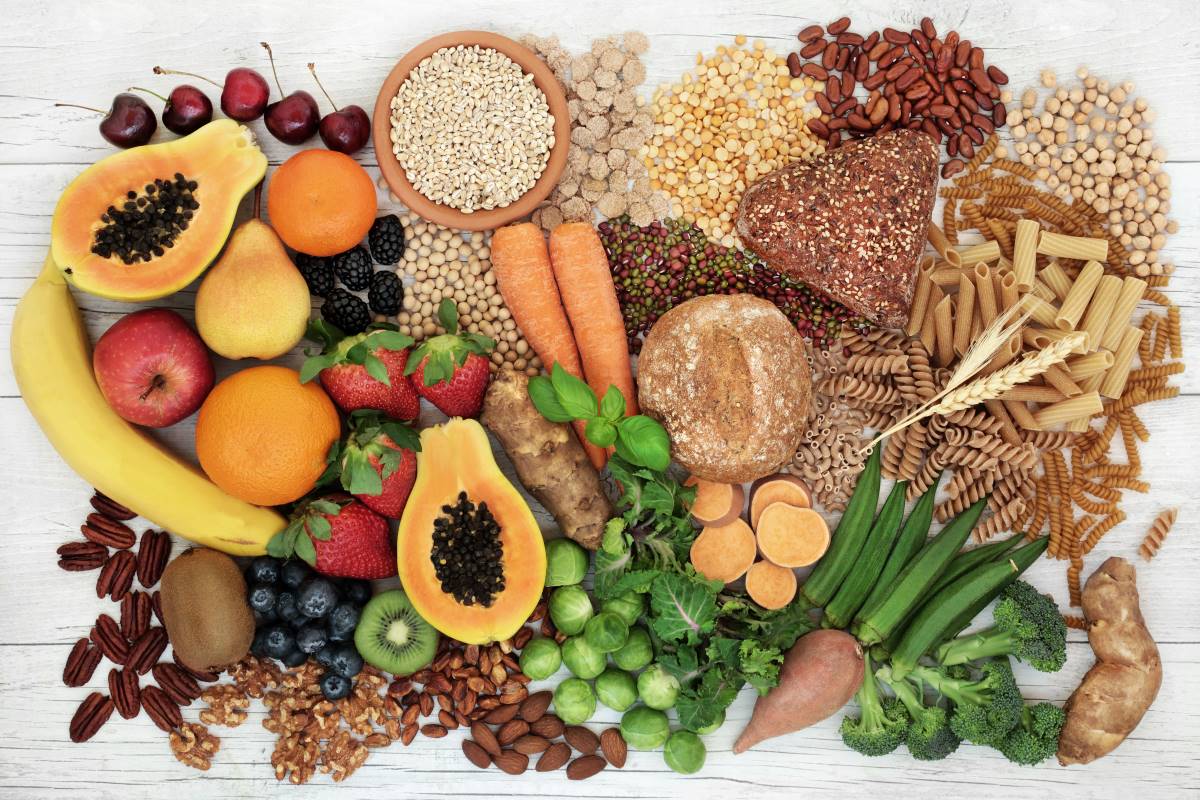The carnivore diet: fantastic or fanatical?
The carnivore diet is the new buzzword that has been making the rounds in the fitness industry in recent years.
Proponents of this super high-protein, high-fat and zero-carb approach wax lyrical about its purported benefits for improved health, body composition, and even mood.
However, a wealth of scientific literature indicates that high intakes of plant foods consistently correlate with reduced risk of all-cause mortality[1]
So, we’re putting these claims under the spotlight to determine whether the carnivore diet lives up to the hype in this instalment in our ‘Diets Reviewed’ series.
What is a carnivore diet?
While there are no ‘official’ definitions for the diet, the carnivore approach is like an extreme version of the keto diet. However, unlike keto, which limits but does not completely restrict carbohydrates, the carnivore diet completely prohibits all plant foods and instead focuses solely on very high intakes of meat, fish, eggs, and small amounts of low-lactose dairy products. While some proponents include plant foods they claim are ‘less toxic’ than others, like olives and lettuce, most carnivores exclude all plants[2].
Permitted foods include chicken, turkey, pork, lamb, beef, offal, oily and white fish, hard cheese, butter and cream. Because carbohydrates are often a big contributor to daily calorie intake, advocates recommend favouring fatty cuts of meat to ensure that you can meet your daily energy needs. It’s safe to say that the carnivore diet is highly restrictive as it completely excludes fruits, vegetables, grains, pulses, or beans. So, forget the side of herby potatoes or a glass of wine along with your ribeye steak.
Here’s a brief overview of what you can eat with the carnivore diet:

One of the earliest proponents of the carnivore diet was American physician James Salisbury, the namesake of the Salisbury steak. He maintained that vegetables and starchy foods produce substances in the body that cause disease. He also made the somewhat unbelievable claim that dysentery could be solved by a strong dose of coffee and chopped lean meat![3]
However, the conviction that an all-meat diet is superior for health has persisted. Modern carnivore diet advocates include Dr Paul Saladino, who believes that ‘colourful plants fuel inflammation in the body’[4]. Dr Shawn Baker (whose medical licence has since been revoked) is another of the diet’s foremost proponents. Baker is a former orthopaedic surgeon, Air Force officer and world-record-holding weight lifter who wrote The Carnivore Diet. He proposes that an all-meat diet is ‘ancestrally consistent’ with the diet of early man.[5] Figures such as Saladino and Baker believe that they benefit from improved health and longevity by following a diet that they believe reflects the eating habits of our ancestors[6],[7].

Claims under the spotlight
Carnivore advocates make numerous claims regarding the benefits of an all-meat dietary approach, but how do they stack up against the science?
1. Plants contain harmful anti-nutrients
According to the likes of Baker and Saladino, plants contain harmful levels of anti-nutrients that act as defence mechanisms, including tannins, lectins, and phytic acid, which block nutrient absorption[8]. Indeed, certain plant foods do contain compounds known as anti-nutrients. For example, glucosinolates in cruciferous vegetables can decrease iodine absorption and potentially impair thyroid function[9],[10]. However, this theory ignores the fact that various modern cooking or preparation methods, such as removing the husk from rice, remove or break down these anti-nutrients. Likewise, these compounds are seldom eaten in large amounts in isolation and the plant foods in which they occur contain thousands of other beneficial substances, such as antioxidants, vitamins and minerals[11].
2. The carnivore diet is consistent with the diet of early man
Carnivore advocates believe that early man survived primarily on a meat-based diet and that, as a result, we are evolutionarily predisposed to do the same. Research shows that hunting for and consuming meat was a critical step in human evolution as nicotinamide, a water-soluble form of vitamin B3 or niacin, was responsible for the increasing size and development of the human brain[12]. However, archaeological evidence indicates that while palaeolithic humans hunted and ate game, they also consumed various plants, fruits, and tubers[13]. This theory also conveniently ignores the fact that early humans only lived to around 40 years of age[14].

3. A carnivore diet can improve body composition
Carnivore proponents argue that focusing the diet purely on meat and animal products improves body composition[15],[16]. It has been well established that high-protein diets support fat loss through their contribution to retaining lean body mass and improved satiety[17]. Of course, creating a calorie deficit is also much easier when you cut out all forms of processed foods. However, research also shows that when calorie and protein intakes are matched, both low-carb and high-carb approaches produce equal amounts of fat loss[18]. Therefore, the main driver of body composition change is negative energy balance rather than the absence of plant-based foods. What’s more, diets with high vegetable and fruit intake have been proven to be especially useful in managing hunger and, therefore, adherence to a given dietary strategy[19].
4. Carbs are the devil
High intakes of refined carbohydrates have been linked to everything from obesity to diabetes and heart disease[20]. However, it is increasingly accepted that diets high in both saturated fats and refined carbohydrates are bad for health, not carbohydrates alone[21]. The reality is that complex starchy, and fibrous carbohydrates have numerous health benefits. High-fibre vegetables and grains are packed with nutrients, fibres and resistant starches that are essential for maintaining a healthy gut microbiome. Gut health is increasingly being recognised for its pivotal role in managing numerous metabolic and autoimmune diseases, including hypertension, type 2 diabetes, high cholesterol, Alzheimer’s, and many more[22]. If improved health is the desired outcome, replacing fibrous vegetables with high intakes of saturated fat, which increases the risk of serious disease, defies all scientific reasoning[23].

Downsides of the carnivore diet
1. It is highly restrictive
The carnivore diet is highly restrictive and lacks numerous essential micronutrients and antioxidants found in fruits, vegetables, whole grains and legumes. Not only are you likely to miss out on variety, flavour and just plain enjoyment, you also run the risk of serious nutritional deficiencies, such as vitamin C, E, K2, potassium, and magnesium.
2. It’s high in saturated fats
The carnivore diet places a high focus on fatty meats with vast amounts of saturated fat. Diets high in saturated fats have been shown unequivocally to increase cholesterol levels and your risk for heart disease[24]. However, we know that focusing most of your fat intake on unsaturated sources like oily fish, nuts, avocado, and olive oil is highly beneficial for maintaining healthy blood triglyceride levels[25].
3. It doesn’t include any dietary fibre
An insurmountable body of research shows that dietary fibre is vital for supporting digestive health, mental wellbeing, insulin sensitivity, blood pressure, and more[26]. Increasing fibre intake may reduce the risk for cardiovascular disease and coronary heart disease by up to 25% due to its positive impact on cholesterol metabolism and blood pressure[27],[28].

4. It may impair your thyroid function
Research suggests that consistently consuming fewer than 50 g of carbohydrates per day can increase the risk of thyroid dysfunction, which can have various adverse effects on metabolism, energy levels, and body composition[29],[30],[31],[32]. This effect increases in severity in proportion to the duration and severity of super low-carb dieting.
5. Unsuitable for certain populations
While there is no evidence to suggest that high-protein diets are harmful to kidney function in the general population, the crucial role of the kidneys in amino acid and protein metabolism means that the carnivore diet is not suitable for people with kidney disease[34]. Likewise, because the diet lacks numerous essential vitamins and minerals, it is not suitable for children, pregnant or lactating women.
6. You will likely experience digestive issues
Don’t be surprised if your bathroom visits become far less frequent with the carnivore diet as there is no fibre to add mass and water to your stool. Inversely, it’s not uncommon to experience acute diarrhoea as the body struggles to handle excessively high levels of fats[33]. This is likely due to a combination of the body being unable to produce enough lipase, the enzyme that breaks down fats, and a lack of plant food, which starves good gut bacteria and increases the risk of gut infection.

7. It’s expensive
There is a reason that most food cultures are based heavily on carbohydrates due to their relative nutrient density, portability and low cost. Baker’s recommended Piedmontese beef, which can cost more than twice as much as a similar cut of meat, is an unaffordable luxury for most[35].
Your training performance will likely suffer
Carbohydrates are used as the primary fuel source during high-intensity exercise, such as resistance training, and low glycogen availability is a primary factor in the onset of fatigue[36],[37]. While the body can adapt, if muscle gain is your goal, there are far more effective and less restrictive means to achieve the same outcome.
8. It may impact the environment
Meat consumption and industrial animal rearing practices contribute significantly to greenhouse gas emissions[38]. Statistics show that the carbon footprint of beef is over 10 times that of rice[39]. That’s not to say you need to cut out meat completely, but an all-meat diet is probably most environmentally impactful.

The take-home
The carnivore diet may help you create a calorie deficit and improve your body composition through its effects on satiety. However, it cannot be ignored that restricting intake of nutrient-dense plant-based foods has numerous negative effects for physical and mental health. With so few health benefits and a very high level of restriction, the carnivore diet represents all the worst elements of dogmatic ‘diet culture’. As a result, an all-meat diet is not an approach we would recommend based on health, enjoyment or performance.
Key takeaways
- The carnivore diet restricts all plants foods and includes only meat and animal products.
- Carnivore proponents claim that their diet is ‘ancestrally consistent’ and avoids ‘toxins’ in plant foods.
- There is no evidence that our human ancestors ate only meat, and archaeological evidence has consistently shown that early man ate a variety of plant foods.
- A wealth of scientific evidence supports that plant foods and fibre are essential to well-being, including mental health, gut health, the immune system, and hormonal health.
- High-fibre diets have been shown to correlate with decreased risk of all-cause mortality, including cardiovascular disease, type ii diabetes, and high cholesterol.
- The carnivore diet does not promote fat loss more effectively than other dietary strategies but may promote calorie restriction.
- The carnivore diet could be harmful at worst and, at best, overly restrictive.






